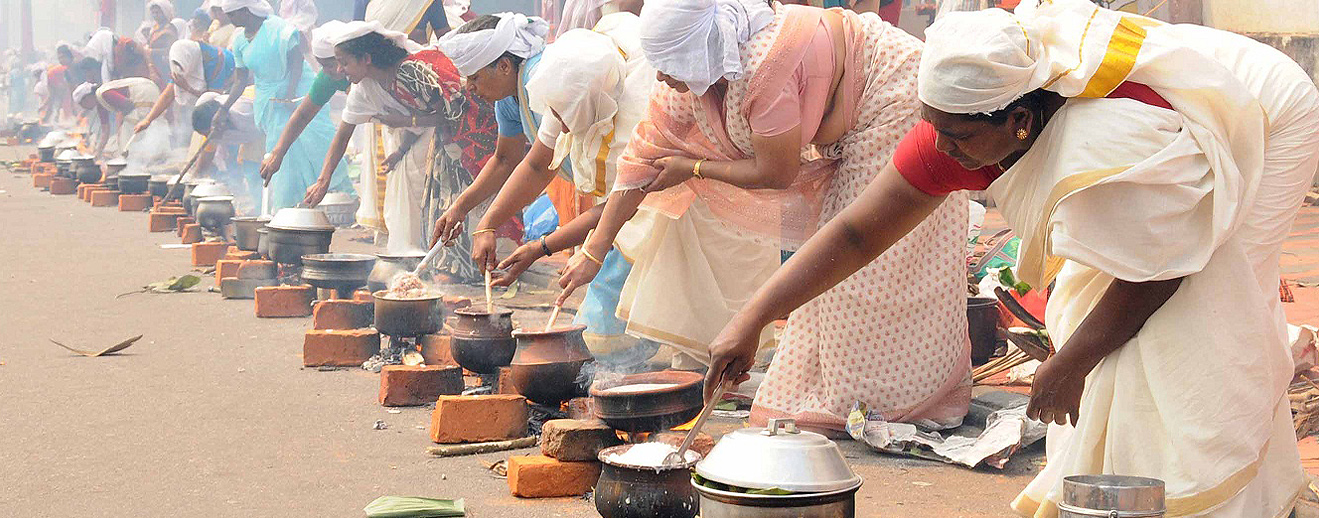
Attukal Pongal, the harvest festival of Trivandrum
Attukal Pongal is a special version of the Pongal harvest festival that takes place each year at the Attukal Bhagavathy temple, 2km from Thiruvananthapuram (Trivandrum) in Kerala. On this occasion nearly 3 million women, from all social classes, meet in the streets around the temple to prepare the famous “pongal” rice.
Attukal Bhagavathy temple and Pongal
The Attukal Bhagavathy temple’s main divinity is the goddess Kannaki (Parvati). She is the supreme mother, creator, protector and destroyer of all living things.
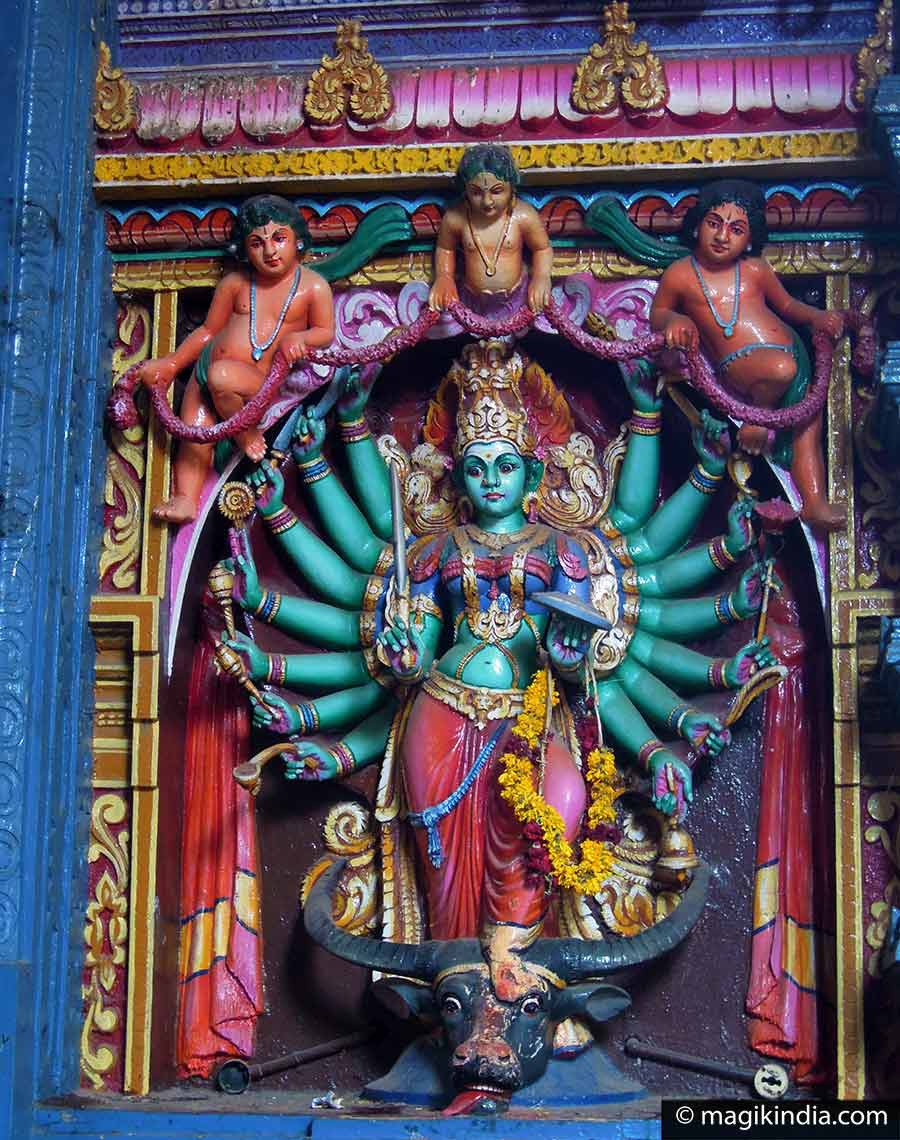
Pilgrims who visit the temple of Sri Padmanabha Swamy in Trivandrum do not consider their pilgrimage complete without a visit to the Attukal-amma sanctuary. Pongala Mahotsavam is the temple’s most important festival.
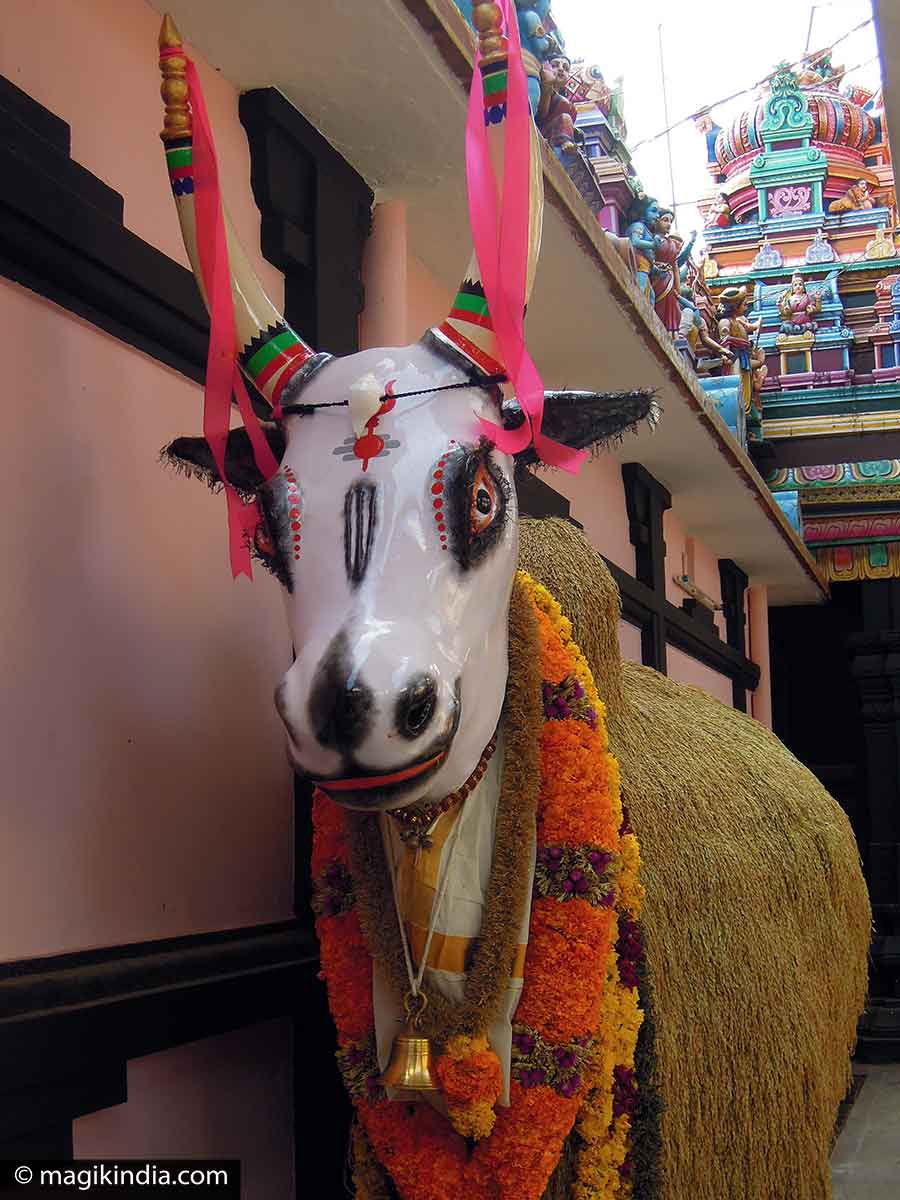
On the ninth day of the ten-day Attukal Pongal festival, nearly 3 million women converge to within a few kilometres of the temple – the largest gathering of women anywhere in the world. In the streets women of all castes and all social ranks prepare pongal together in small earthen pots on wood fires.
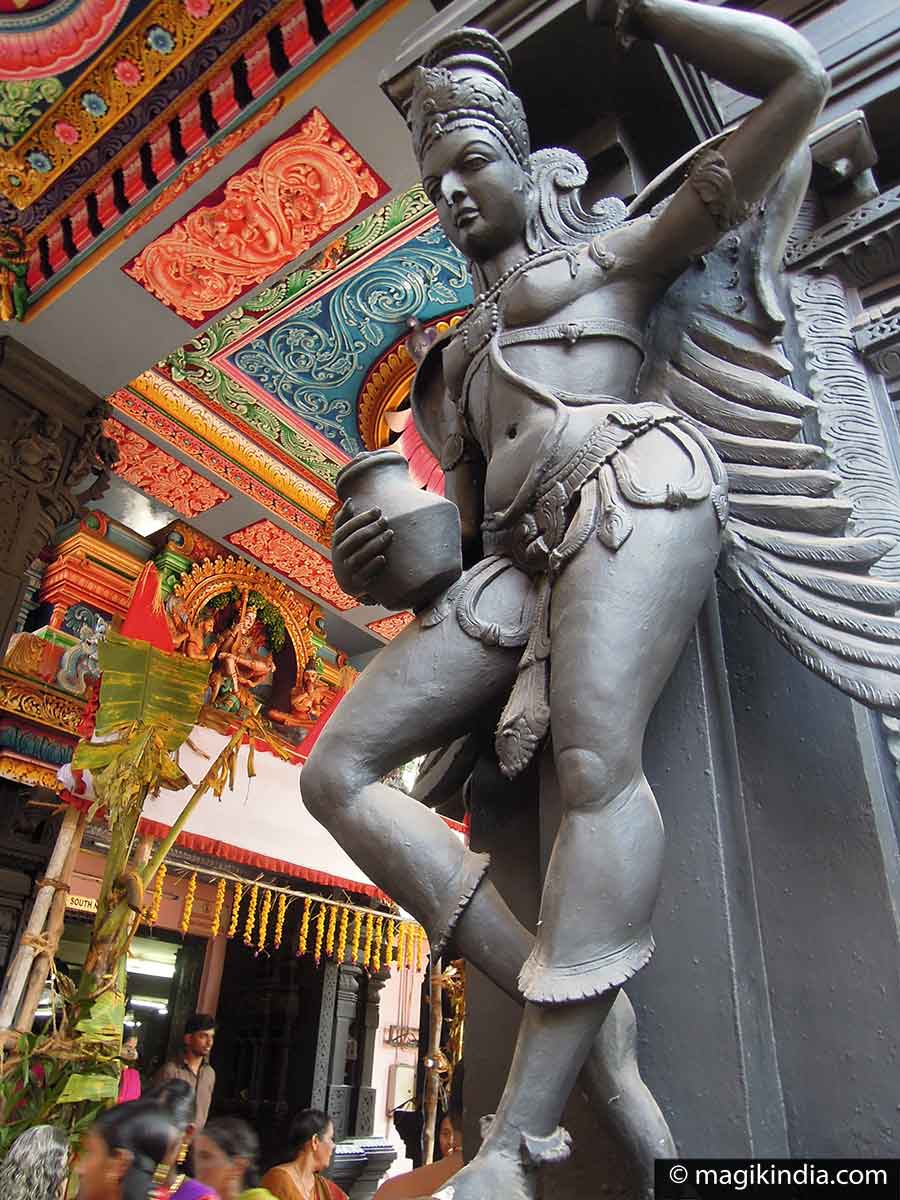
Festival highlights
On the 1st day, Kappukettu begins. This is a musical recitation of the story of the goddess Kannagi, and it continues until the ninth day when, at the end of the story, the goddess kills King Pandya. The story symbolises the victory of good over evil, light over darkness and justice over injustice.
[ Kappukettu ]
On the 3rd day, the boys taking part in Kuthiyottam (see below) begin their austerities.
On the 9th day, as soon as the Kappukettu recitation has finished, the Attukal Pongal rituals begin. A fire called Pandara Aduppu is lit in the temple, and from it all the other fires used to cook the pongal are lit.
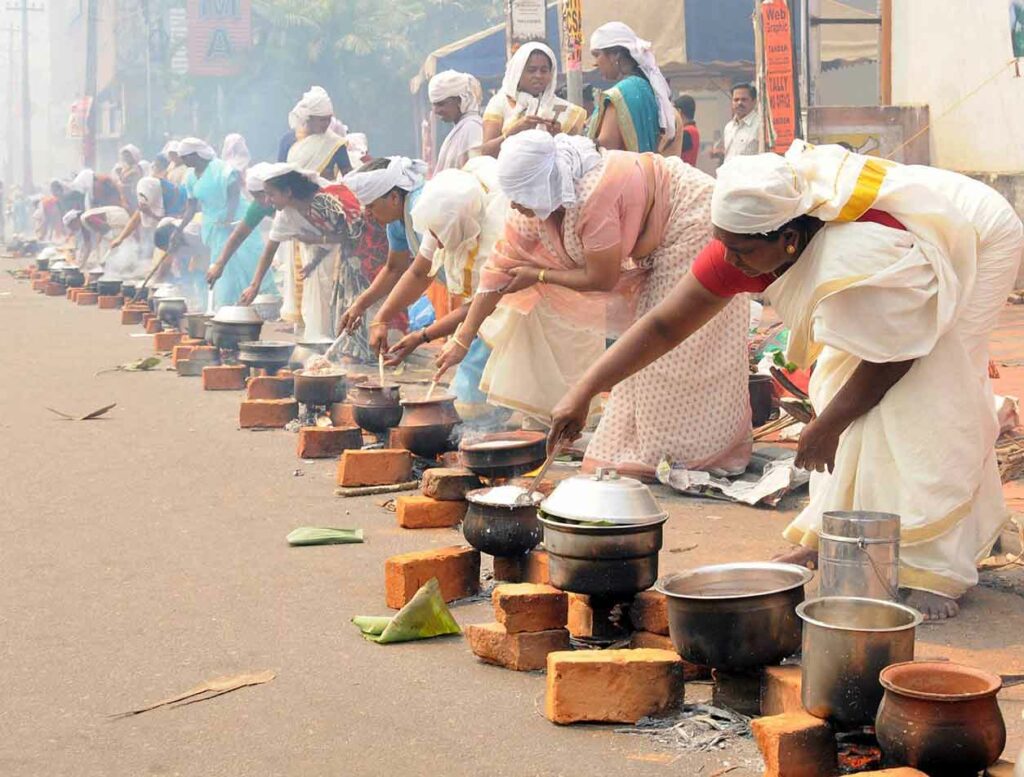
The cooking of the pongal begins around 10am. Around 2pm, the pongal is consecrated by the melsanthi (chief priest). He comes with the sword of Kannaki and blesses the women and the pongal by sprinkling them with holy water and flowers. The women take the holy pongal home with them.
In the evening an effigy of Attukal-amma is carried in procession on a decorated elephant, to the Manacaud Sastha temple. The Kuthiyottam boys join the procession after the Chooral Kuthu ceremony.
Next day, the 10th day, the goddess comes back to the Attukal temple in the morning and pujas called Akkathezhunallippu are performed. The boys taking part in Kuthiyottam are released from their penance. The festival ends on the night of the 10th day with a puja called Kuruthi Tharpanam.
Kuthiyottam and Thalappoli

Kuthiyottam and Thalappoli are two rites performed during Attukal Pongala. Boys under 12 are only eligible for Kuthiyottam. Starting on the third day of the festival the boys observe Kuthiyottam Vrutham, seven days of penitence when they must stay in the temple, sleeping on the ground there, following a very strict diet and bathing three times a day.
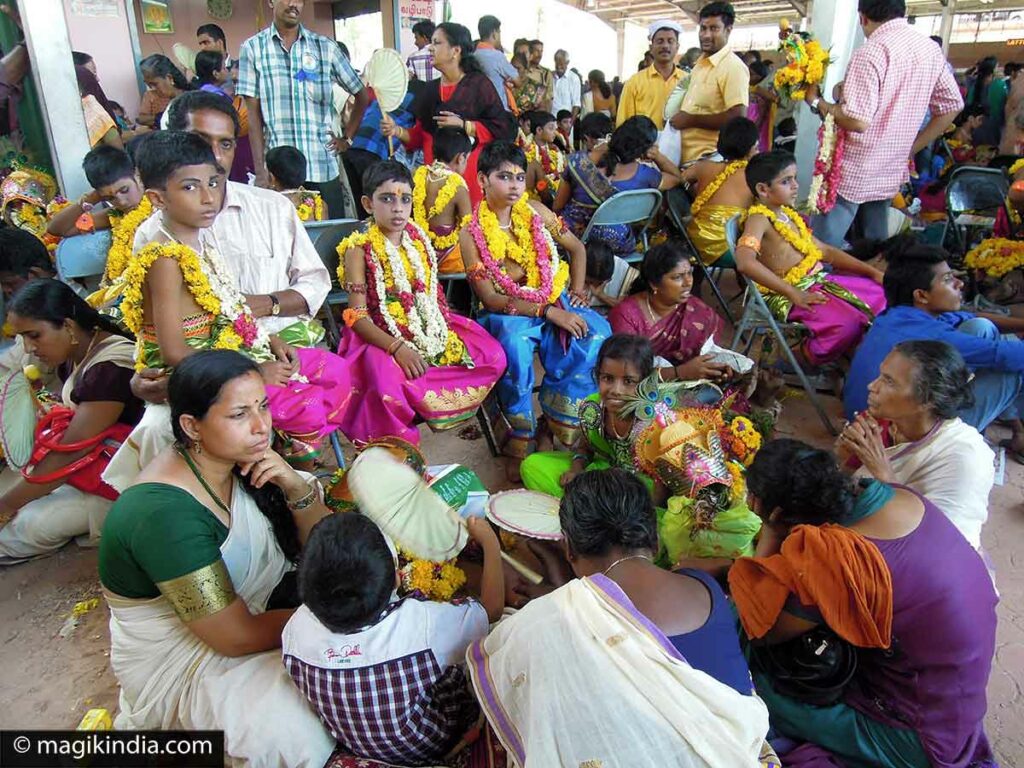
They must also perform Devi Namaskarams, prostrations to the goddess after morning and evening ablutions – 1008 prostrations in all. These boys represent the wounded soldiers of the goddess Mahishasura Mardini.
Boys observing Kuthiyottam accompany the final procession (Ezhunnellathu) from the Attukal temple to the Sasha temple. They come back around midnight, and stay in the Attukal temple until the last day of the festival, when they go home.
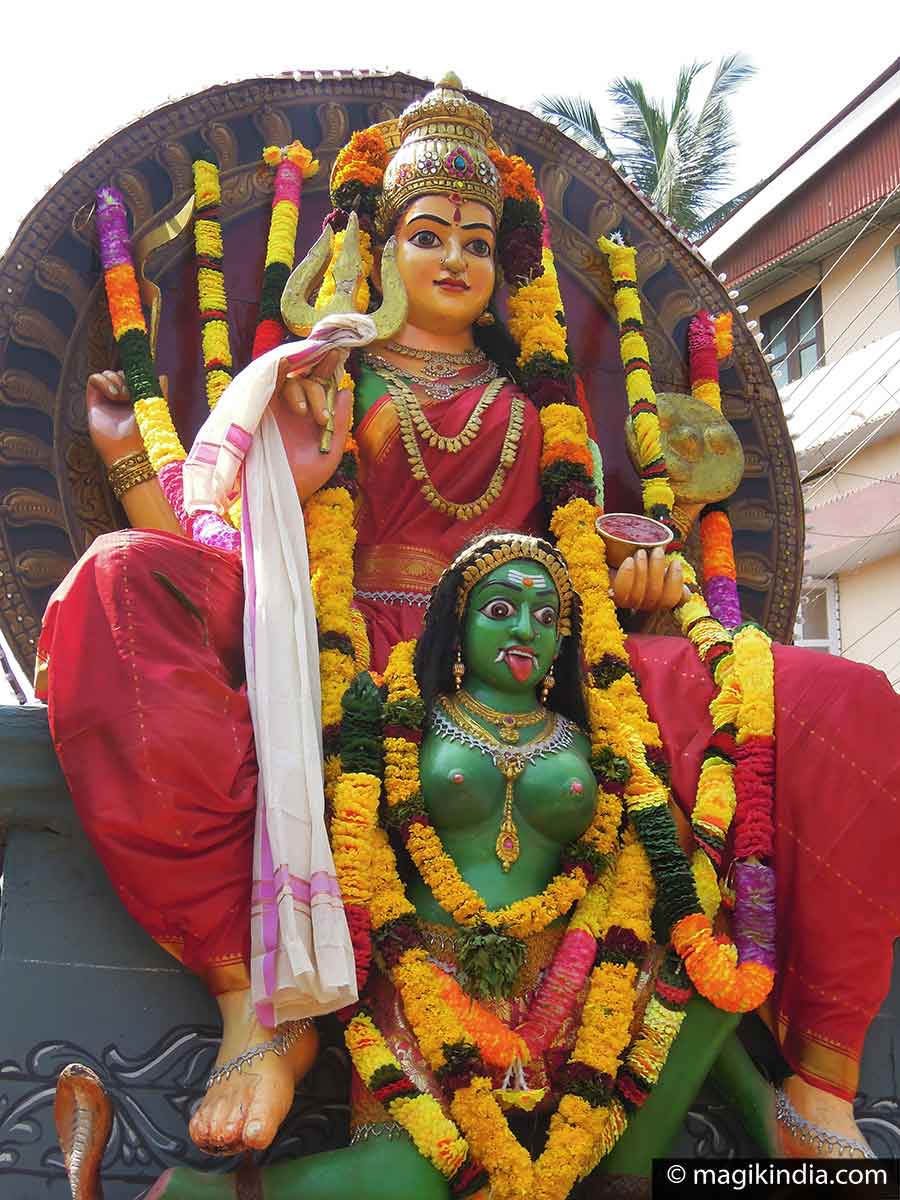
Girls aged under 10 take part in Thalappoli. On the 9th day (the day of the Pongala) the young girls are dressed in new traditional robes with garlands of flowers in their hair. They walk around the divinity in the temple, each bearing a round tray (Thaalam) with flowers, an oil lamp and offerings for the goddess. It is said that Thalappoli will bring them joy and good health.

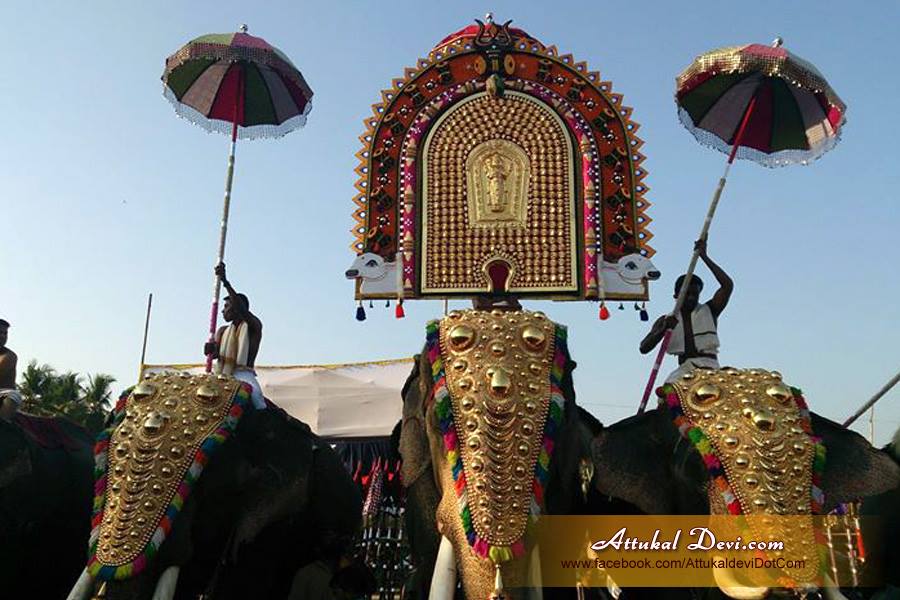


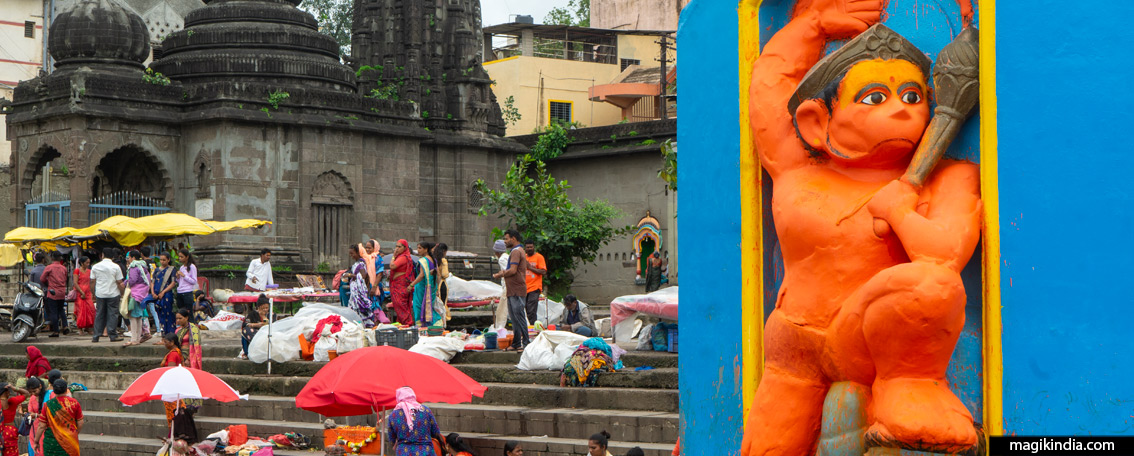
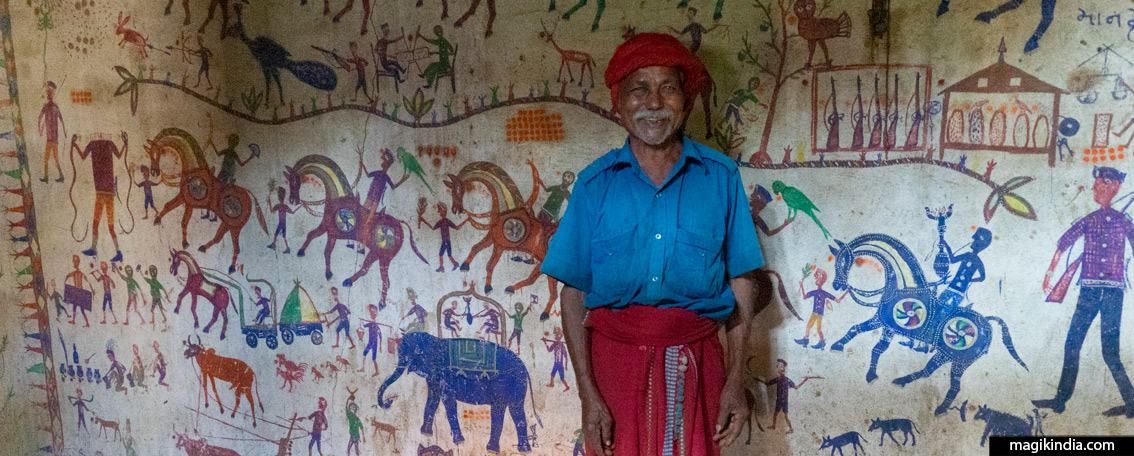
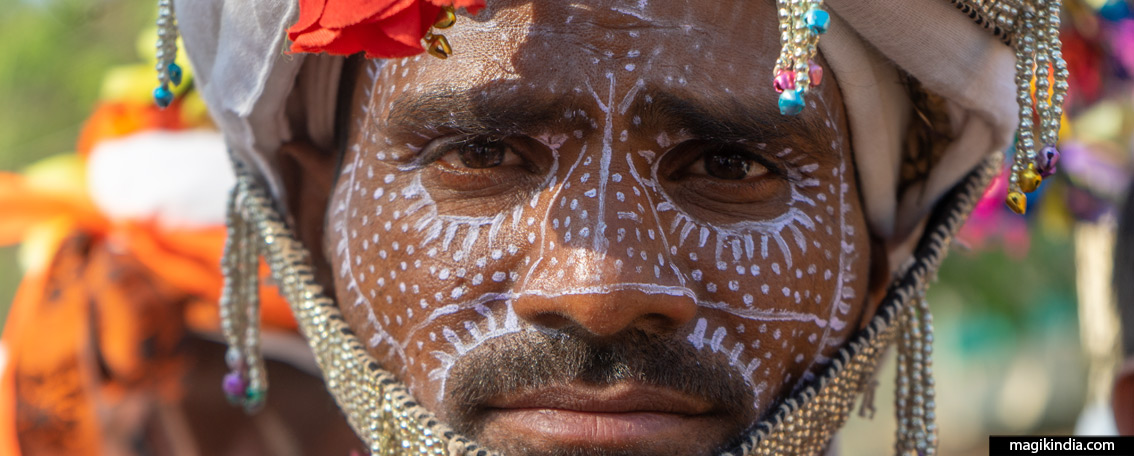
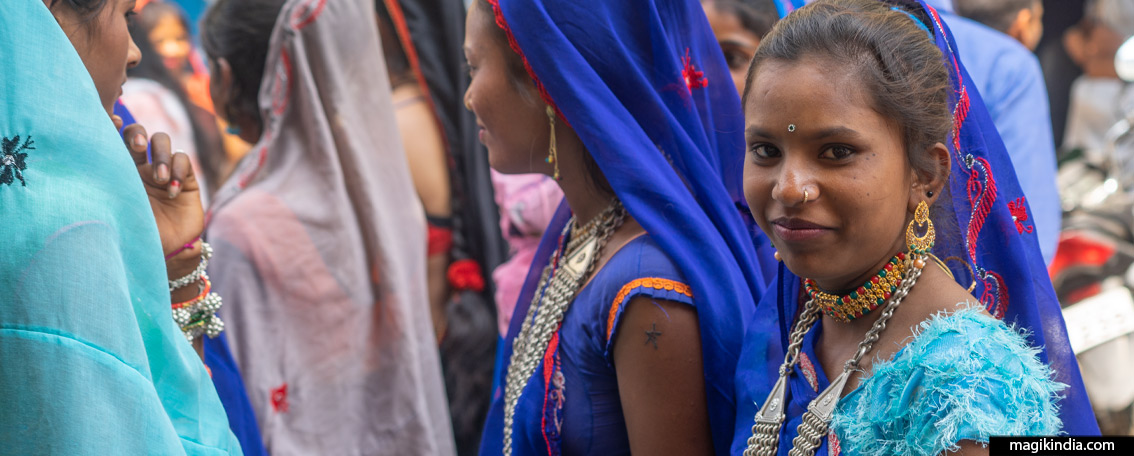
Yes indeed, Thanks ji ! Regards, Mathini
Enhance divine power and spirituality.. Great festival in south India..
thanks 🙂
Great Article